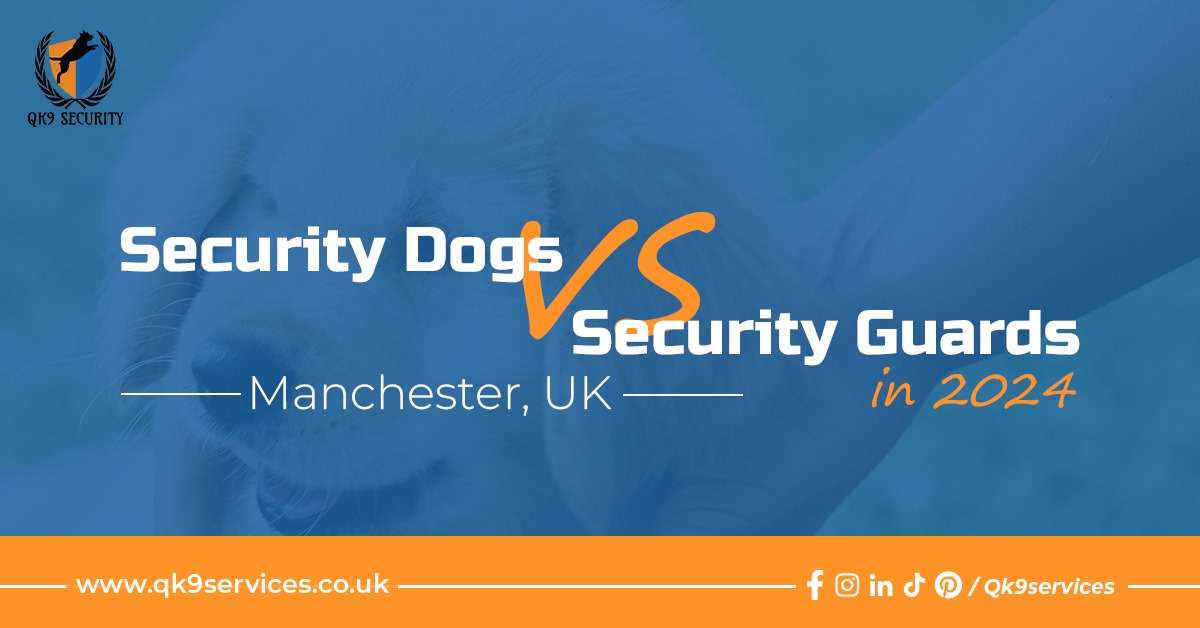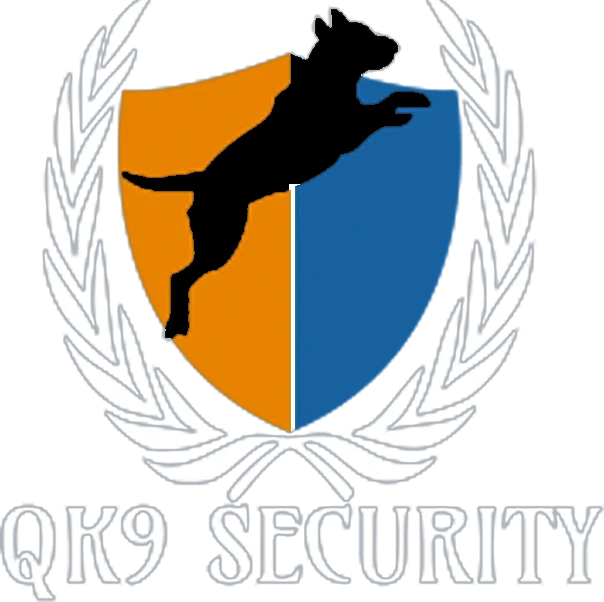Security Dogs Vs Security Guards in 2024

Security Dogs Vs Security Guards in 2024
For the protection of buildings, big gatherings, companies, events, and much more, security dogs and security guards are equally important in a variety of scenarios. Specialized security canines are capable of some tasks that even highly skilled security guards are not able to perform. A security guard would also be more advantageous in other situations. If you don’t know what each is good at, it can be challenging to decide which one you need. Choosing between security dogs and security guards to satisfy your security needs should be made easier with the help of this article.
K9 security, which involves using trained dogs for security purposes, offers several advantages over human security guards in certain situations. Here are some advantages of K9 security:
Enhanced Senses:
In comparison to humans, dogs have more sensitive senses of hearing and scent. They are useful in spotting dangers like drugs, bombs, or intruders since they can detect odors and sounds more precisely and at longer ranges. On the other hand security guards need specific tools to detect them.
Deterrence:
A skilled K9 unit on the premises can be a powerful deterrent to the offenders. When criminals see or hear a dog on patrol, they are more likely to reconsider their plans before committing crimes. Therefore, canines are more advantageous than security personnel to curb crimes. If it comes to brainpower, dogs are still no match for humans, even with their extraordinarily keen sense of smell.
Speed and mobility:
Dogs can cover large regions quickly because they are inherently speedy and agile. This makes them particularly helpful when quick action is required, like pursuing intruders or securing a large area.
24/7 Vigilance:
Dogs are continually on guard, even at night, due to their innate desire to defend their area. Constant monitoring can lower the chance of breaches that could happen when human guards are tired or inattentive.
Non-Verbal Communication:
Dogs can pick up on subtle alterations in behavior, scent, and body language that people can miss. With this skill, they may recognize questionable people or behaviors and let their handlers know about them by acting in a certain way… On the other hand, dogs may not be the best at communicating clearly in some situations. When managing huge crowds and keeping control of a vast area, it can be helpful for guards to communicate with one another
However, dogs can obey some commands if they are taught, but they are not capable of having a full two-way dialogue. They can obey basic commands, but they cannot take the position of security officers in scenarios requiring sophisticated teamwork. Therefore, security guards and guard dogs are vital to reducing prevalent crimes.
Reduced Liability:
The possibility of harm coming to intruders or security staff is reduced when trained K9s can neutralize threats without using physical force. In heated situations, this can help allay liability worries.
Specialized Detection Abilities:
Dogs may be trained to detect drugs, explosives, and even medical issues like seizures or low blood sugar. Compared to people or technical gadgets, they may be more accurate in identifying these chemicals or conditions.
Adaptability:
It is possible to use K9 units in a variety of settings, including restricted quarters, open regions, and varied weather. They can be used in a variety of security circumstances due to their adaptability.
Conclusion
It is noteworthy that although K-9 security presents certain benefits, it cannot take the place of human security officers. It is better seen as an additional strategy to strengthen security measures. K9 units, technology, and human guards are frequently used in tandem to provide the best possible security solution, depending on the particular requirements of the setting and circumstances.
Also READ

